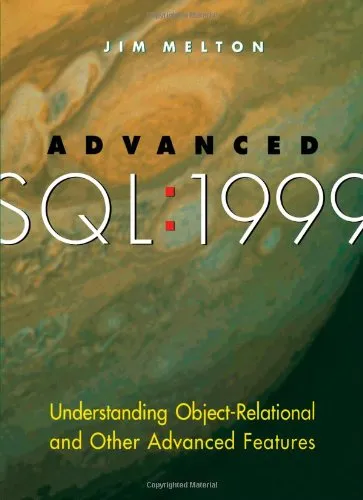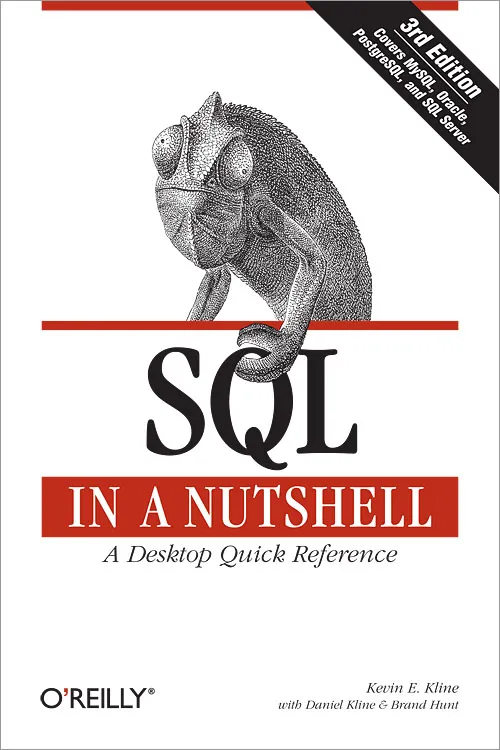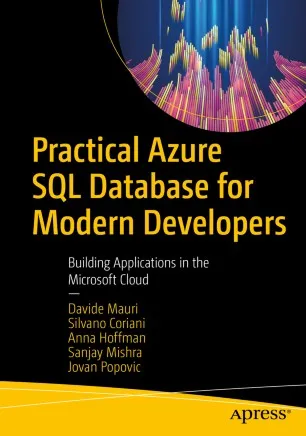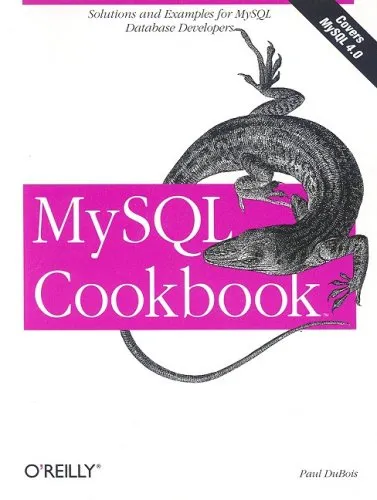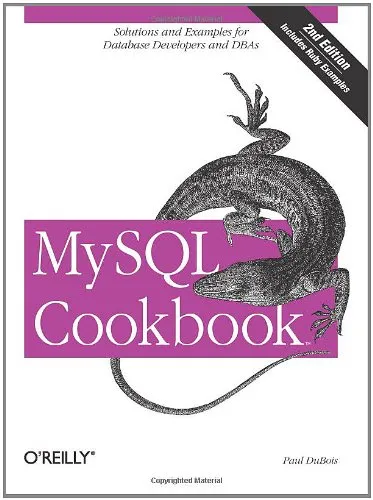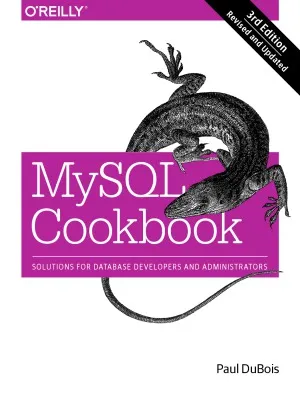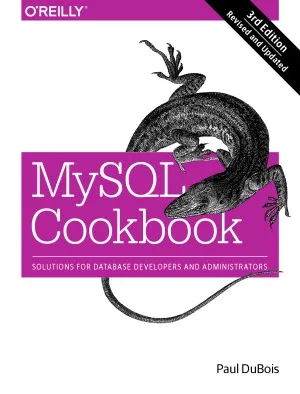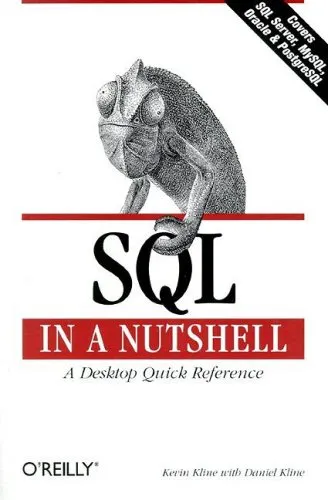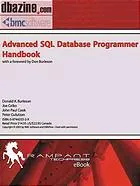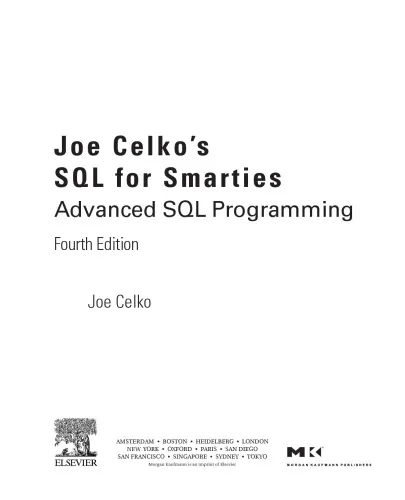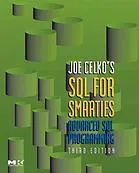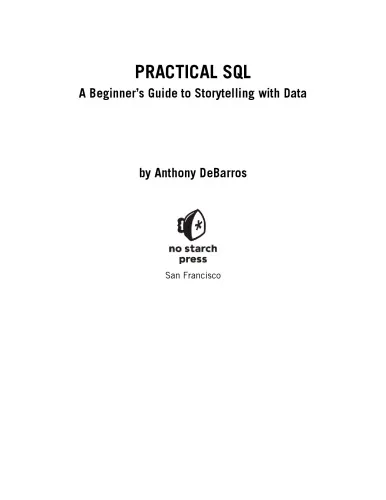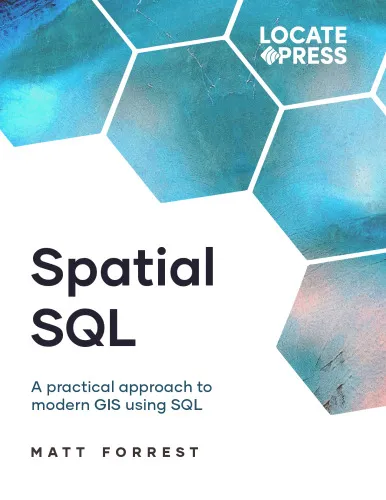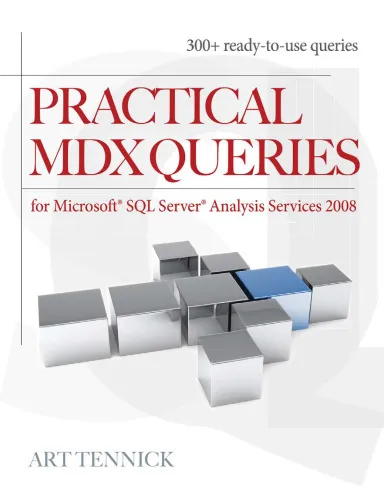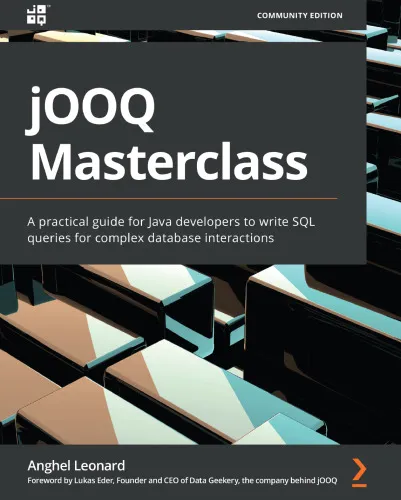Advanced SQL:1999: Understanding Object-Relational and Other Advanced Features (The Morgan Kaufmann Series in Data Management Systems)
5.0
بر اساس نظر کاربران

شما میتونید سوالاتتون در باره کتاب رو از هوش مصنوعیش بعد از ورود بپرسید
هر دانلود یا پرسش از هوش مصنوعی 2 امتیاز لازم دارد، برای بدست آوردن امتیاز رایگان، به صفحه ی راهنمای امتیازات سر بزنید و یک سری کار ارزشمند انجام بدینکتاب های مرتبط:
خلاصه تحلیلی کتاب
کتاب Advanced SQL:1999: Understanding Object-Relational and Other Advanced Features (The Morgan Kaufmann Series in Data Management Systems) یکی از آثار مرجع در حوزه SQL استاندارد و مدلهای Object-Relational است که با رویکردی علمی و نظاممند نوشته شده است. این کتاب با ارائه ساختار دقیق مفاهیم، به خواننده کمک میکند تا نه تنها دستورات SQL را در سطح مقدماتی و میانی بیاموزد، بلکه به عمق قابلیتهای پیشرفته این زبان برسد.
این اثر بر اساس استاندارد SQL:1999 شکل گرفته و به توضیح جنبههای نوین همچون انواع داده پیچیده، امکانات Procedural و Triggerها، و پشتیبانی از ساختارهای شیءگرا میپردازد. نویسنده با تکیه بر سالها تجربه، مفاهیم را با مثالهای عملی و تحلیل موردی روشن کرده است تا پژوهشگر و توسعهدهنده بتوانند از آن در پروژههای واقعی استفاده کنند.
کتاب بیان میکند که چگونه ویژگیهای Object-Relational در SQL:1999، پل ارتباطی میان دادههای ساختاریافته و شیءگرا ایجاد کرده و امکان طراحی سیستمهای پیچیدهتر و منعطفتر را فراهم میآورد. این مسئله برای کسانی که به دنبال بهرهگیری از مزایای هر دو رویکرد هستند، حیاتی است.
نکات کلیدی و کاربردی
یکی از ویژگیهای برجسته کتاب، نگاه جامع به نحوه استفاده از SQL:1999 در محیطهای عملی (Production-Level) است. نویسنده نشان میدهد که چگونه میتوان با استفاده از امکانات Object-Relational، روابط و جداول را به شیءهای قابل انتزاع تبدیل کرد که توسعه و نگهداری آسانتری دارند.
این کتاب همچنین به کاربردهای Stored Procedures، User-Defined Types و پشتیبانی از Recursive Queryها میپردازد. این مباحث برای پژوهشگرانی که با پایگاهدادههای بزرگ و نیاز به مدلسازی پیچیده مواجه هستند، اهمیت دوچندان دارد.
در بخشهای مرتبط، خواننده با تفاوتهای اساسی SQL:1999 نسبت به نسخههای قبلی آشنا میشود، و یاد میگیرد چگونه این تفاوتها میتواند پرسوجوها را کارآمدتر و قابلیتهای سیستم را گستردهتر کند. استفاده از Case Studies در کتاب، این مفاهیم را شفاف و ملموس ساخته است.
نقلقولهای ماندگار
در جایجای کتاب، گزیدههایی وجود دارد که عمق نگاه نویسنده به فلسفه طراحی زبان SQL:1999 را نشان میدهد؛ این نقلقولها میتوانند نقطه تأملی برای هر متخصص پایگاهداده باشند.
استانداردها فقط محدودیت نیستند؛ آنها نقشه راهی برای خلاقیت پایدارند. نامشخص
SQL:1999 دری را گشود که داده و شیء را در یک بستر یکپارچه به گفتوگو بنشاند. نامشخص
چرا این کتاب اهمیت دارد
اهمیت این کتاب تنها در آموزش دستورات جدید SQL:1999 نیست، بلکه در معرفی نحوه تفکر شیءگرایانه در طراحی پایگاهدادههاست. با ترکیب مدل رابطهای و شیءگرا، توسعهدهندگان میتوانند سیستمهایی بسازند که انعطافپذیری بالاتری دارند و نیازهای پیچیده سازمانها را پاسخ میدهند.
برای پژوهشگران، این کتاب منبعی معتبر برای درک دقیق استاندارد SQL:1999 محسوب میشود. خواننده نهتنها با زبان SQL بهعنوان ابزار، بلکه با فلسفه و منطق پشت این استاندارد آشنا میشود. این عمق دانش باعث میشود تا در طراحیهای بعدی، رویکردی مبتنی بر بهترین الگوهای شناختهشده اتخاذ شود.
نتیجهگیری الهامبخش
در نهایت، کتاب Advanced SQL:1999: Understanding Object-Relational and Other Advanced Features (The Morgan Kaufmann Series in Data Management Systems) نهتنها یک متن آموزشی بلکه مسیری برای تحول در اندیشه طراحی پای
Analytical Summary
The book Advanced SQL:1999: Understanding Object-Relational and Other Advanced Features (The Morgan Kaufmann Series in Data Management Systems) stands as an authoritative exploration of one of the most significant evolutions in database language history. Written with precision and depth, it dissects the SQL:1999 standard — a transformative upgrade to SQL that expanded the language into new paradigms such as object-relational capabilities, complex data types, and enhanced procedural constructs.
SQL:1999 marked a turning point where traditional relational database principles met the flexibility and richness of object-oriented thinking. This volume methodically delineates each advanced feature introduced, serving not only as a reference but as a pedagogical bridge for database professionals, system architects, and academic readers seeking to understand both the structural changes and their practical applications.
Every chapter builds upon a foundation of meticulous examples and carefully curated explanations, ensuring that even intricate subjects—such as user-defined types, table inheritance, and polymorphic behaviors—are accessible without compromising on technical rigor.
Key Takeaways
Readers will come away with a comprehensive grasp of SQL:1999’s advanced features and their impact on modern database design and implementation.
A firm understanding of object-relational extensions to SQL, including structured types and reference types, vital for building sophisticated enterprise systems.
Insights into the fusion of relational and object-oriented paradigms, enabling more natural modeling of complex real-world domains.
Practical awareness of procedural extensions, such as triggers, routines, and enhanced control structures, elevating database logic capabilities.
Knowledge of international standardization efforts and how SQL:1999 aligns with the broader goals of data interoperability.
Memorable Quotes
“SQL:1999 represents a deliberate step toward richer semantics in databases, bridging the gap between data and behavior.” Unknown
“Incorporating object-relational principles into SQL expands our capacity to represent reality within digital constraints.” Unknown
“Standards like SQL:1999 endure because they balance innovation with stability, enabling sustainable database evolution.” Unknown
Why This Book Matters
The significance of this work lies in its unique capacity to translate a dense, technical specification into an accessible narrative without losing nuance or precision.
For academics, it offers a valuable lens through which to understand the theoretical motivations behind object-relational enhancements. For practitioners, the book provides a roadmap to adopting these features in production, balancing compliance with innovation. The primary keyword — Advanced SQL:1999: Understanding Object-Relational and Other Advanced Features (The Morgan Kaufmann Series in Data Management Systems) — is more than a title; it encapsulates a transformational phase in database history.
Information unavailable on specific awards or recognitions, as there is no reliable public source confirming such details. What remains certain is its enduring value as a scholarly and practical resource.
Inspiring Conclusion
In the landscape of database systems, few resources equip the reader with both technical prowess and conceptual clarity as Advanced SQL:1999: Understanding Object-Relational and Other Advanced Features (The Morgan Kaufmann Series in Data Management Systems) does.
By bridging relational rigidity with object-oriented flexibility, it sets the stage for the next generation of data architects and engineers to craft solutions that are as robust as they are adaptable. Whether you are a professional seeking mastery or an academic pursuing depth, let this book be your companion on the journey toward advanced SQL fluency.
The invitation is clear: read, reflect, share, and discuss its insights with peers and colleagues. In doing so, you will not only deepen your understanding but also contribute to the evolving discourse surrounding SQL standards and their real-world applications.
دانلود رایگان مستقیم
شما میتونید سوالاتتون در باره کتاب رو از هوش مصنوعیش بعد از ورود بپرسید
دسترسی به کتابها از طریق پلتفرمهای قانونی و کتابخانههای عمومی نه تنها از حقوق نویسندگان و ناشران حمایت میکند، بلکه به پایداری فرهنگ کتابخوانی نیز کمک میرساند. پیش از دانلود، لحظهای به بررسی این گزینهها فکر کنید.
این کتاب رو در پلتفرم های دیگه ببینید
WorldCat به شما کمک میکنه تا کتاب ها رو در کتابخانه های سراسر دنیا پیدا کنید
امتیازها، نظرات تخصصی و صحبت ها درباره کتاب را در Goodreads ببینید
کتابهای کمیاب یا دست دوم را در AbeBooks پیدا کنید و بخرید
1165
بازدید5.0
امتیاز0
نظر98%
رضایتنظرات:
5.0
بر اساس 0 نظر کاربران
Questions & Answers
Ask questions about this book or help others by answering
No questions yet. Be the first to ask!
